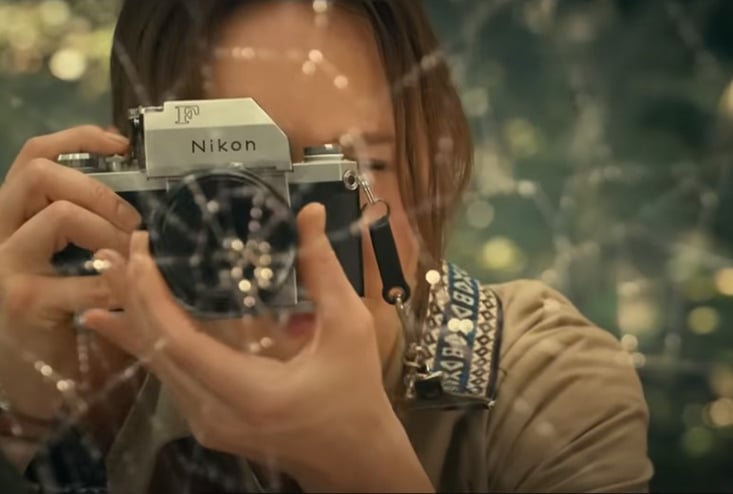The latest Spider-Man film installment from Sony Pictures is Madame Web, staring Dakota Johnson as the eponymous character. Superhero movies have had their share of critics, but this one, it seems, is the object of the wrath and disgust of critics and audiences alike. The negative reviews don’t begin to cover the apparent stupidity of the script or stilted dialogue of the film.
The fact that this film has done poorly at the box office, however, is not as damning a commentary on the movie as are the star’s comments about it. In an interview for Bustle, Johnson expressed her thoughts about her unfortunate experience in making this film. “I can’t take any of it seriously at all … Unfortunately, I’m not surprised that this has gone down the way it has,” said Johnson.
She is refreshingly honest and authentically disappointed that she allowed herself to become involved in such a project at all. It morphed into something entirely different as the filming progressed, and then, there was no exit. It had to be completed. Where did things go wrong?
“It’s hard to get movies made,” said Johnson, “and in these big movies that get made … decisions are being made by committees, and art does not do well when it’s made by committee. Films are made by a filmmaker and a team of artists around them. You cannot make art based on numbers and algorithms. My feeling has been for a long time that audiences are extremely smart, and executives have started to believe that they’re not. Audiences will always be able to sniff out bullsh*t. Even if films start to be made with AI, humans aren’t going to f*cking want to see those.”
So-called collaborative environments are prone to yielding bad results in any field, but this is especially the case when it comes to artistic expression. If there are too many proverbial chefs in the kitchen, egos will inevitably clash, and in the case of a film, the script, and, indeed, the movie itself will suffer.
Of course, we cannot expect a film like Madame Web to be made with the same quality as a film made by an independent filmmaker. Superhero films are franchise films, which tend to lack creativity. Nevertheless, it is still possible for artistic choices to be made, and even a franchise can be done well without taking the audience for granted or assuming they are a bunch of philistines.
There have been a number of successful superhero movies that were artistically unique. Tim Burton’s Batman (1989) stands out not only because of Burton’s edgy, off-the-wall creativity, but also because of the intensity of Michael Keaton’s performance as Batman and the unsettling chaos brought on by Jack Nicholson’s take on the Joker.
Similarly, in Sam Raimi’s Spiderman (2002) with Tobey Maguire in the title role and actors such as the superb Willem Defoe and frequent Raimi collaborator Bruce Campbell making appearances, we have before us a compelling story with compelling acting. In these films, Burton and Raimi stand out because they are independent filmmakers with a purpose and mission, and they demonstrate a clear artistic vision.
One can expect any film in need of big studio funding will have to conform to the expectations of Hollywood producers who are more concerned with profit than art. Still, Burton and Raimi managed to create franchise films that were unique and unparalleled in their creativity. Their talents of both the directors and the actors provided the films with a deeper understanding of human nature. Burton’s Batman, for instance, is not just a retelling of Bob Kane and Bill Finger’s original DC Comics creation. Rather, Burton brings characters together and elevates them into archetypes. Suddenly, Gotham City is not so alien to us, and the characters are flawed, just like ourselves.
In her interview, Dakota Johnson brought our attention to another significant point and an additional challenge to movie making, namely the presence and influence of artificial intelligence in the film industry. Although AI could be just used by a talented filmmaker as just another odd curiosity at first, any “art” that relies solely on AI algorithms will evaporate into thin air, just like the viral memes that populate the internet. Inevitably, they will be replaced by other memes and other fake images. There is no beginning or end to this process—only a feedback loop with an interest that lasts about as long as it takes to scroll through a social media feed. This is not art but, rather, content generation—a mindless factory churning out mindless distractions.
What defines something as art is our ongoing return to it. One doesn’t watch, for example, Billy Wilder’s Double Indemnity(1944) once. One goes back to it because of Barbara Stanwyck’s feminine power, Fred McMurray’s obvious self-awareness as he hurtles toward the abyss anyway, and Edward G. Robinson’s unrelenting pursuit of justice.
What is both heartening and refreshing in this whole episode, however, is the truth that Johnson was able to speak: the audience is not, after all, stupid. People do look for meaning when they go to the cinema, even in comic book fantasies. For the most part, people can still recognize when something is a dull fraud. Does it all come down to money? Maybe the complete narcissistic obliviousness of big studios will take a different turn once they recognize the loss of revenue. In the meantime, audience should be discerning and seek art that elevates.
Correction: An earlier version of this article incorrectly identified Madame Web as a product of Marvel Studios rather than Sony Pictures in the first paragraph. The piece has been updated to correct this error.

Leave a Reply